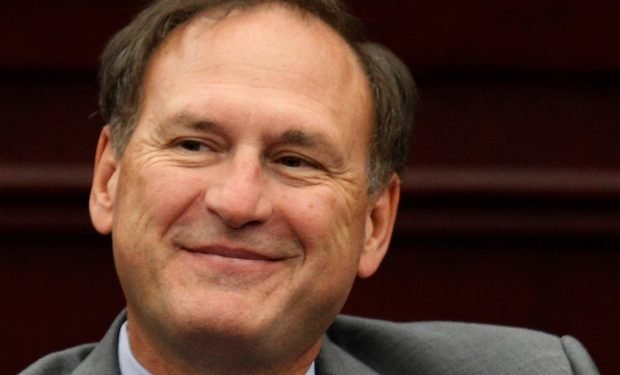As the political world waits — still — on the Supreme Court’s long-delayed decision on former President Donald Trump’s “presidential immunity” claim that he hopes will shield him from prosecution for actions he took while in office, including efforts to change the election results, SCOTUS is making other decisions. One of the biggest, with perhaps the most far-reaching implications, came yesterday when the high court stripped away federal powers in eliminating the so-called “Chevron Deference.”
The decision looks like foreshadowing to some, paving a runway for the flight of Project 2025, the Heritage Foundation-led plan for a second Trump administration that, among other controversial moves, contemplates replacing tens of thousands of experienced federal workers with party (read: MAGA) loyalists who have scarce other qualifications for the jobs they’d perform.
In this case, the power to regulate and the benefit of a professional’s expertise is delivered instead to the judiciary, which is no longer obliged to recognize the findings and recommendations of federal agencies.
“For decades,” the Washington Post writes “the court’s decision in Chevron U.S.A. v. Natural Resources Defense Council directed judges to defer to the reasonable interpretations of federal agency officials in cases that involve how to administer ambiguous federal laws. That power will now revert to judges.”
In dissent, Justice Elena Kagan called out the reversal of the “Chevron Deference” as an instance where the majority “grasps for power.”
“In one fell swoop,” Kagan wrote, “the majority today gives itself exclusive power over every open issue—no matter how expertise-driven or policy-laden—involving the meaning of regulatory law.”
ScaryLawyerGuy, a popular social media personality who comments on legal matters and often decries the state of the modern media, issued a series of posts about the decision, including a short work of dystopian narrative fiction — in the form of a Q&A from a child of the future — that illustrates its potential effects, slamming the SCOTUS and Justice Alito in particular in the process.
"Daddy, why can't we breathe clean air?"
— scary lawyerguy (@scarylawyerguy) June 28, 2024
"Well son, we had an agency filled with scientific experts who understood this problem but Sam Alito decided he knew better than them how to handle the issue. Now put on your K95 mask so we can outside and not get emphysema." https://t.co/tgI3rSgYgY
“Daddy, why can’t we breathe clean air?” the child asks. “Well son, we had an agency filled with scientific experts who understood this problem but Sam Alito decided he knew better than them how to handle the issue. Now put on your K95 mask so we can outside and not get emphysema.”
Eliminating the Chevron doctrine is, in lay terms, the equivalent of blessing judicial mansplaining. "Oh, you're an expert on clean water and think a pollutant should only be present at a certain level? Sorry, my uninformed opinion trumps your PhD in environmental science."
— scary lawyerguy (@scarylawyerguy) June 28, 2024
ScaryLawyerGuy makes a case that his nickname — “scary” — fits some of the SCOTUS justices better than it fits him. He likens the scuttling of Chevron to “judicial mansplaining” that privileges position over merit, and rank over accuracy and expertise, a recipe for chaos.
Guarantees forum shopping by right wing ideologues with a host of Trump-appointed options at the district court level who are happy to issue nationwide injunctions, effectively neutering any public policy corporations don't like. But please, more about debate optics 🙄 https://t.co/alXVmhPa9o
— scary lawyerguy (@scarylawyerguy) June 28, 2024
On the other side of opinion on the decision are people like BloomTech CEO Austen Allred who, in a thread shared by Elon Musk (“good thread”), addressed the impossibility of complying with ambiguous regulations and the frustrations of being hounded by agencies that are unable to give adequate pre-violation guidance. Allred believes the SCOTUS decision makes the world “ever so slightly more just.”
While we had our preferences with regard to ISAs, weren't even prescriptive, we just wanted to be given any guidance at all that we could operate under.
— Austen Allred (@Austen) June 28, 2024
We would have complied with anything, and we were given nothing.
